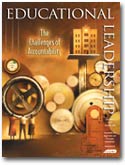Choosing Choice: School Choice in International Perspective
Edited by David N. Plank and Gary Sykes, 2003
Often, policy debates about the effects of educational choice initiatives in the United States are limited by inconclusive and small-scale studies of existing voucher and charter school programs. Largely missing from the dialogue are the lessons learned from the growing international experience with choice.
Choosing Choice: School Choice in International Perspective provides one of the first international comparative studies of school choice and voucher policies. Although the book does not produce a definitive judgment on choice, it notes the elements of a choice policy that can enhance or diminish education opportunities for students.
Choosing Choice contains studies by prominent scholars on school choice programs in eight countries: England, Chile, South Africa, the Czech Republic, China, Australia, New Zealand, and Sweden. The studies focus on several framing questions: Why have governments in widely varying circumstances come to view school choice as an apt response to education dilemmas? What have we learned about the impacts of these policies on existing education systems and the quality of teaching and learning in the classroom?
The studies found a tension between highly centralized state systems and the increased pushes for less centralization through greater choice. These tensions, the editors contend, are characterized by four powerful forces: parents' desire for schools based on shared community values and their reaction against a state-centered education bureaucracy; families' need to “escape” schools characterized by vast inequities; the desire for alternatives among those who believe that more private incentives and greater school autonomy can improve efficiency; and the beliefs of some that education can only be improved by market forces and privatization.
The authors maintain that U.S. policymakers should learn from the experiences of other nations. For example, New Zealand's initial steps toward choice were oriented more toward the notions of parental involvement and community than toward market competition, giving choice a broad appeal. Various countries have encountered problems in their choice programs, such as oversubscribed schools, insufficient managerial capacity in newly established schools, and parents' tendency to move their children to schools with higher proportions of advantaged students.
Plank and Sykes conclude that “the evidence that school choice policies ‘work’ remains provisional and equivocal.” Experience shows that competition is not only unlikely to improve schools at the bottom of the performance distribution, but will most likely exacerbate their problems. The editors also point to a lack of plausible arguments in favor of standardized, state-centered education, however. They contend that the “real issue in most countries . . . is not whether or not to allow choice, but how to manage it.”
Published by Teachers College Press.www.teacherscollegepress.com. 256 pages. Price: $45.00 hardback.
—Reviewed by Arnold F. Fege, Director of Public Engagement and Advocacy for the Public Education Network and Founder and President of Public Advocacy for Kids

